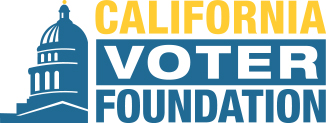Excerpts:
It has been a touchstone of California politics over the past three decades that the fastest-growing group of the state’s voters was shunning partisan labels in favor of being identified as unaffiliated voters, engaged in politics but not parties.
The 30-year run for that bit of conventional wisdom has, at least for now, come to an end
Friday’s report from Secretary of State Shirley Weber, a biennial look at voter registration in between scheduled statewide elections, tallied 22.1 million registered voters, a historic 88% of all eligible Californians. And as it’s been for much of the past century, Democrats accounted for the largest share — 46.2% of the registered electorate and near double the percentage of Republicans.
But the real surprise was the state’s shrinking share of unaffiliated voters, those who proclaim “no party preference” in their registration. Those voters made up only 23.7% of the registered electorate, a drop of almost 5 percentage points over the last two years and their first decline in any of the state’s odd-year registration reports dating to 1991.
“We are living in polarizing times and the intense partisanship on display in Washington, D.C., is likely having an impact on Californians’ political alliances as well,” said Kim Alexander, president of the California Voter Foundation.
While the ranks of Democrats have continued to grow, Republicans have managed to stop the bleeding — especially notable as just three years ago, we were reporting how Republicans had fallen to the third-largest group of voters, eclipsed by the “no party preference” electorate. In 2016, I wrote about how new and younger California voters were moving away from the two-party model.
It should be pointed out that the real boost in partisan voter registration came in 2020 and that we’ll have to see if this holds. Still, the new report has generated some buzz. Eric McGhee, a longtime researcher of voting trends at the Public Policy Institute of California, said it’s strange to think that “after 30 years of growing partisan polarization, now would be the time voters decide the parties matter,” especially given how California’s top-two primary rules make party allegiance irrelevant in state and congressional contests. (Full Story)

